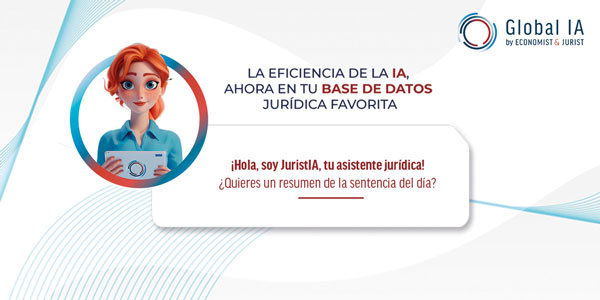





Facade of the Supreme Court. (Image: Judiciary)

The Supreme Court (TS) has ruled that personal data on doping of athletes has the category of data related to health and, therefore, the treatment, transfer or communication of said information enjoys reinforced protection, and has established that an infraction in this matter constitutes a very serious fault.
The Contentious-Administrative Chamber (Third Section) has ruled this way in a recent ruling, in which it declares that there is no grounds for the cassation appeal of the Spanish Agency for Health Protection in Sports (AEPSAD) against a ruling by the National Court (AN) that, in November 2020, confirmed the sanction imposed on him by the Data Protection Agency, in July 2018, for publishing health data of an athlete, within the framework of a sanctioning file that ended up archived, and thereby violating the provisions of article 7.3 of the Organic Law on Data Protection of a Personal Nature, an infraction classified as very serious in article 44.4 b) of the same.

The athlete reported to the Data Protection Agency that the AEPSAD had revealed data about his health when publishing his allegations in the file that had been opened for him for doping. In his response to the file he indicated that the presence of a prohibited substance in his physiological samples was due to the accidental ingestion of a medication that your child was taking for a common illness.
The Supreme Court clarifies in the ruling the nature of the doping data. As explained, “in the processing of data referring to the activities of athletes that transcend their private sphere, such as those related to conduct violating anti-doping regulations, “without regard to their conceptualization as data included in the category of data health, is governed by the legislation of the European Union and national regulations on the protection of personal data, and the subjects responsible for the processing of data must –whether public authorities or private entities–reconcile the freedom of information guaranteed by Article 20 of the Spanish Constitution, with the fundamental right to personal and family privacy and to one’s own image, which is protected by Article 18 of our Fundamental Law.”

Judging, specifically, the cassational infractions formulated against the contested ruling, the Chamber considers that the National Court has made an interpretation that it considers “adequate and reasonable.”
of the term “data relating to health”, referred to in article 7.3 of Organic Law 15/1999, of December 13, on the Protection of Personal Data, “in relation to the inclusion in this category of data those data related to doping of athletes, for the purposes of granting the processing of this type of data the reinforced protection guaranteed by said Organic Law, and considering applicable, in cases of non-compliance, the sanctions corresponding to the type of very serious infraction provided for in article 44.4 b) of the aforementioned law.

The Supreme Court maintains that this interpretation of article 7.3 of Organic Law 15/1999 “is in accordance with the legislation of the European Union and state regulations on the protection of personal data and also complies with national and international regulations.” anti-doping, whose purpose is to guarantee equity and equality in sports competitions, associated with the concept of fair play, promote the health of athletes, and protect and safeguard the community good of public health, to the extent that these data, which concern their physiological or genetic conditions, or their state of physical or mental health, may have significantly negative repercussions for those concerned.
For the Supreme Court, the purpose of these regulations is to “guarantee fairness and equality in sports competitions, associated with the concept of fair play, promote the health of athletes, and protect and safeguard the community good of public health, in the to the extent that these data, which concern the physiological or genetic conditions, or the state of physical or mental health of the same, may have significantly negative repercussions for the interested parties.”
The magistrates consider that the AEPSD committed a very serious infraction when it disclosed through its website information about the resolution of the Administrative Court of Sports that contained information about the health status of the athlete and his minor son.
The TS reproduces the argument from the National Court ruling that it concerns the athlete’s health data “without prejudice to the fact that in the fight against doping the determination of the existence of infractions and their publicity are regulated in detail to avoid the falsification of competitions and, ultimately, trying to ensure that the game is fair, but it does not follow from such rules that violations in terms of data protection do not have the seriousness rating that corresponds to the special categories of data that are particularly protected, what are the health data like?
The sentence is the number 1568/2024, of October 8. It is signed by the magistrates José Manuel Bandrés Sánchez-Cruzat (president and speaker), Eduardo Calvo Rojas, José María del Riego Valledor, Diego Córdoba Castroverde and Isaac Merino Jara.
In expansion
